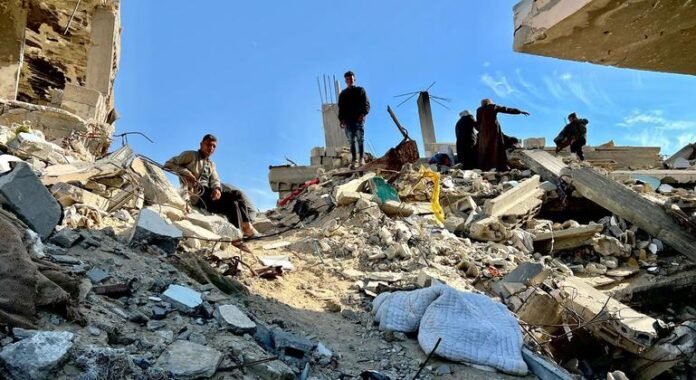Jonathan Dumont said in an interview with UN News from Gaza that many people have been repeatedly displaced and families are forced to live either in tents or in the ruins of collapsed buildings, with no electricity or clean water.
This interview has been edited for brevity and clarity.
UN News: The current war in Gaza has lasted more than a year. In such a situation, how would you describe the ground conditions there?
Jonathan Dumont: The devastation is absolutely shocking. This year, I have visited many places, including Goma, Port au Prince, Khartoum, where people are having trouble getting food or have been displaced.
But I haven’t met a single person in Gaza who hasn’t been displaced at least two or three times by military operations. Almost all were displaced from their homes.
In southern Gaza, many people are living in tents as winter approaches, when rain and wind blow away the tents and flood them. Most children don’t even have shoes.
Many felt they had no choice but to return home, when in most cases their homes were reduced to rubble.
I met some families who were living in such cramped spaces surrounded by pieces of cement piled up around them. There is no electricity, pure and clean water or even sewage system. For many of them, this is the second winter they are still homeless.
UN News: You also visited northern Gaza. What did you see there?
Jonathan Dumont: I have visited Gaza City, although I have not been to the far north. Gaza City is a big city but many buildings have been destroyed. There used to be luxury buildings near the seashore, things like fishing ports, but now it has become a ghost town.
WFP is able to reach those areas, so there is some food available, but food that is not available to the international community or to WFP is sky high.
A guy saw chilies costing $195… five dollars for a chili. People cannot buy such expensive things.
Bakeries are being treated like banks – metal bars and metal aisles are built to get people in and out because people are desperate, and no one wants people to get hurt or panic to get food.
WFP is distributing hot food in Khan Yunis The people there are really disappointed and frustrated – the despair is visible in their faces and eyes.
UN News: The IPC report warns of very serious hunger conditions and some people may be close to starvation. Do you think food insecurity in Gaza is getting worse?
Jonathan Dumont: The problem is that the society here is completely broken, there is no police, no infrastructure or any structure of society left. As a result, what we have seen in southern Gaza is the rise of gangs. Our trucks from the south were looted, our drivers were beaten up.
We are constantly trying to find solutions for food supply. Obviously, the easiest way to do this is through a ceasefire, which we always hope will be implemented.
If this is not the case, then we need to find a way to bring all the food we get outside of Gaza into the country so that this food can reach the people. We must ensure that people get food.
UN News: Many bakeries are not working. How many of these bakeries are running at full capacity?
Jonathan Dumont: WFP has no bakeries in South Gaza, which are actually much larger in size and capacity. Some bakeries are working in the north, there are small bakeries in the south, so when people get some flour, they are a bit better off.
Here bread is the main food, bread is life.

